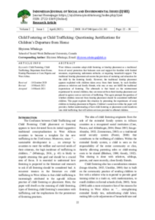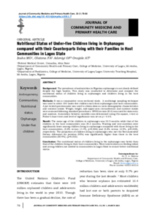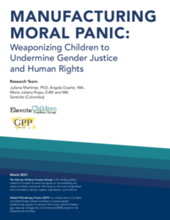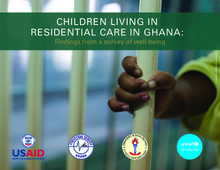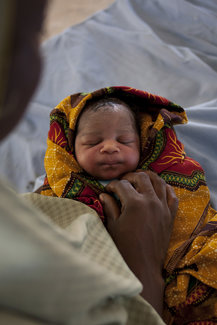

Displaying 71 - 80 of 634
The Livelihood Empowerment Against Poverty (LEAP) program is Ghana's first social protection program to provide cash and health insurance to the poor and vulnerable. This study looks beyond the direct impact of the program and examines the indirect impacts on labor transitions as well as the engagement of children and the elderly in the labor market.
This paper explores whether children removed from kinship placement should be considered trafficked children by presenting the experiences of some children in kinship placement in Nigeria.
This study was conducted to determine and compare the nutritional status of children living in orphanages and children living in the host communities in Nigeria.
This report explores how gender-restrictive groups are using child protection rhetoric to manufacture moral panic and mobilize against human rights, and how this strengthens the illiberal politics currently undermining democracies.
This report, produced by the Department of Social Welfare and Ghana Statistical Service with UNICEF support, provides an overview of the main findings from a census of residential care facilities in Ghana, an enumeration of the child population in these facilities, and a survey on a representative sample of such population.
According to this article from CNN, gunmen have abducted eight children and two adults from an orphanage in Nigeria's federal capital, Abuja.
This paper explores Lagos private schools as crucial sites of care for children with parents in the diaspora.
This study aims to explore the experiences of Ghanaian care leavers to discern the factors that promote and impede their educational attainment.
This briefing paper - developed by UNICEF and the Social Policy Research Institute, in collaboration with the National Development Planning Commission - built on existing microdata, analyses of children’s vulnerabilities and specific phone survey data collected between March and June 2020. The paper outlines the primary and secondary impacts of COVID-19 on children in Ghana, including the impacts on vulnerable children such as children with disabilities, street-connected children, and children in residential care.
Using a qualitative design, the author of this study interviewed 12 social workers to explore the benefits of family support services and challenges that inhibit the gains from the services.

